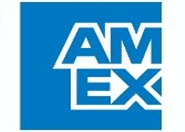Business Credit Scores

When you hear the term “credit score,” you may think of a particular number or one of the three big credit bureaus. But what about business credit scores? As a current or future business owner, it is important to know that businesses do indeed have credit scores, just like individuals. And just like personal credit scores, a business credit score is simply a measure of how financially trustworthy your organization is as a borrower.
Business credit scores are calculated by taking various pieces of data and assigning them a value. These sections of data include (but are not limited to): payment history, credit in use and net worth.
The three main credit bureaus — Equifax®, Experian®, and Dun & Bradstreet® — all calculate business credit scores, but each bureau scores differently. A scoring model might be from 1 to 100, or 0 to 300, or 101 to 992. In addition to the varying credit data such as balance, credit limits and open accounts, the credit report might also consist of industry and company information, payment index, public records, etc.
In some ways, a business credit score is like a personal credit score. For example, they both fall within certain ranges. Meaning, the higher the score, the lesser the assumed risk. As with personal credit, businesses with a higher credit score have a better chance of acquiring financing and securing a lower interest rate on that loan.
In other ways, business credit scores are not at all like personal credit scores. For instance, scores generated for individuals by FICO usually ranges from 300 to 850 while business credit scores will be ranked on several different numerical scales, as mentioned earlier in this article. Before you look up your score, make sure you know which one you are seeing.
One other major difference is that there is no federal law regulating credit reports for businesses. Because business credit is not covered under the Fair Credit Reporting Act (FCRA), virtually anyone can access credit information about a business. Also, businesses do not have the right to request free credit reports each year and business credit reports cannot be frozen, as individual reports can be.
Can business credit affect an individual’s personal credit? Yes, it’s a definite possibility. Most business credit loans will require a guarantee, which could mean your personal assets would take a hit if there were a default. In many instances, business credit cards are reported on your personal credit reports as well.
Whether you are an existing business owner or just getting started, you will want to make your business credit score a priority. Knowing how business credit scores work and keeping up to date on yours will greatly improve your business’s ability to secure low interest financing and lines of credit. Any business looking to better its financial health, regardless of size or age, can benefit from fostering a working knowledge of what these credit scores mean to the business. And just like personal credit, a low or non-existent score should not be a cause for panic, but rather an opportunity for growth. There are numerous benefits to having a good credit score and it is important to keep building that score so you can pursue business success for years to come.
Return to Blog








* Created by
